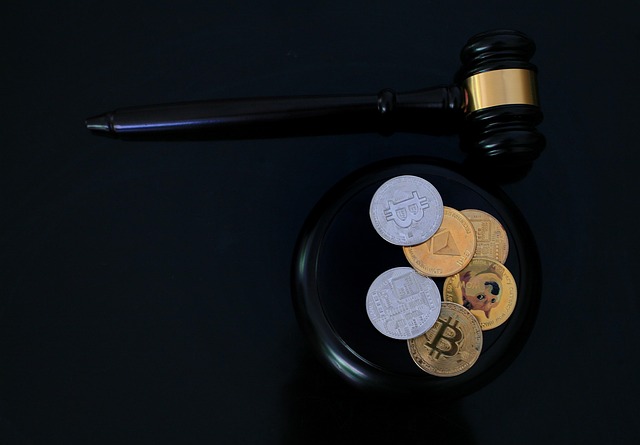Is Crypto Exchange Legal in Canada: Rules, Risks, and How to Use Licensed Platforms
Author: Jameson Richman Expert
Published On: 2025-10-20
Prepared by Jameson Richman and our team of experts with over a decade of experience in cryptocurrency and digital asset analysis. Learn more about us.
Is crypto exchange legal in Canada? Yes — but with important regulatory conditions. This article explains the current legal framework for cryptocurrency exchanges in Canada, how federal and provincial rules apply, what compliance and consumer protections are in place, how taxes work, and practical steps to choose a legal, secure exchange. You’ll also find links to reputable government resources and curated further reading on related topics such as XRP trading, ETFs, price history, and platform support technologies.

Table of contents
- Overview: Legal status of crypto exchanges in Canada
- Federal regulation — FINTRAC and AML/ATF rules
- When crypto becomes a security: Provincial securities regulation
- Tax treatment by the CRA
- Consumer protection and dispute resolution
- How to verify whether a crypto exchange is legal in Canada
- Practical tips for safe crypto trading
- Examples, enforcement history, and related reading
- Conclusion: What Canadian users should do now
Overview: Legal status of crypto exchanges in Canada
Cryptocurrency exchanges are legal in Canada, but they operate within a dual regulatory landscape. At the federal level, many exchanges that facilitate crypto buying, selling, or transfers are treated as money services businesses (MSBs) for anti-money laundering and anti-terrorist financing (AML/ATF) purposes and must register with the Financial Transactions and Reports Analysis Centre of Canada (FINTRAC). Separately, provincial and territorial securities regulators determine whether particular crypto tokens or trading activities qualify as securities or derivatives, which triggers securities laws and exchange/regulatory registration requirements.
This means that whether and how an exchange is regulated depends on services offered (custodial wallet services, trading, derivatives), the types of assets listed, and where the platform actively solicits Canadian users. Canada’s framework aims to reduce financial crime risk, protect investors, and bring more transparency to the crypto ecosystem while allowing legally compliant exchanges to operate.
Federal regulation — FINTRAC and AML/ATF rules
Since 2020, Canada expanded the scope of the Proceeds of Crime (Money Laundering) and Terrorist Financing Act (PCMLTFA) and related regulations to include cryptocurrency service providers. Key federal obligations include:
- Registration with FINTRAC: Exchanges and custodial wallet providers that offer services in Canada generally must register as MSBs with FINTRAC.
- KYC (Know Your Customer): Collect and verify customer identity information for transactions and account opening.
- Recordkeeping and reporting: Maintain detailed transaction records and submit suspicious transaction reports (STRs) and large cash transaction reports when applicable.
- Compliance programs: Implement internal controls, compliance officers, employee training, and ongoing risk assessments.
These rules are similar in intent to AML/ATF frameworks in other advanced jurisdictions. FINTRAC publishes guidance for MSBs and provides information about registration and compliance expectations — see FINTRAC’s website for official details.
Why FINTRAC registration matters to users
- Registered MSBs are subject to audits and enforcement actions for non-compliance, offering a baseline of oversight.
- Registration implies the platform has implemented KYC/AML systems that can deter illicit activity.
- However, FINTRAC registration does not mean the platform is approved as a securities marketplace — it only tracks AML/ATF compliance.

When crypto becomes a security: Provincial securities regulation
In Canada, the classification of a crypto asset as a security is determined by provincial and territorial securities regulators, coordinated through the Canadian Securities Administrators (CSA). If a token or activity meets the definition of a security or derivative under provincial laws, the platform offering trading in those tokens must comply with securities legislation. This can include:
- Registration as a dealer, adviser or marketplace;
- Disclosure and prospectus requirements for token issuers;
- Capital and custody rules to protect client assets;
- Ongoing regulatory reporting and compliance obligations.
Staff notices from the CSA and provincial regulators provide guidance on how they assess tokens (e.g., economic realities, expectation of profit, and the structure of offers). In practice, many major exchanges take a conservative approach by delisting tokens that could be construed as securities in Canada or by restricting certain products (like derivatives) to registered platforms.
Provincial enforcement and licensing examples
Different provinces have taken active stances on enforcement and registration. Ontario’s securities regulator, the Ontario Securities Commission (OSC), and other provincial authorities have issued enforcement actions and guidance to ensure investor protection. That said, regulatory approaches continue to evolve as new products (stablecoins, tokenized securities, ETFs) and technologies (DeFi) emerge.
Tax treatment by the CRA: How crypto is taxed in Canada
The Canada Revenue Agency (CRA) treats cryptocurrency as a commodity. For tax purposes, this classification informs how transactions are reported:
- Personal use vs. business activity: If crypto transactions are personal (e.g., buying digital art for personal use), gains may be non-taxable; if they are business-related (trading, mining, staking as a business), income is taxable and expenses may be deductible.
- Capital gains: Disposition of crypto where it’s an investment may trigger capital gains or losses; only 50% of gains are taxable as a taxable capital gain.
- Barter and income situations: If crypto is received as payment for goods or services, it’s treated as income at fair market value.
- Reporting obligations: Keep accurate records of dates, amounts, counterparties, and value in CAD at time of transactions.
Accurate recordkeeping is critical for CRA compliance. Many exchanges provide transaction histories, but users should keep independent records and consult tax professionals for complex situations.
Consumer protection and dispute resolution
Canada’s consumer protection regime for crypto is not as centralized as for bank deposits. Key points:
- No blanket deposit insurance: Funds held on a private crypto exchange are generally not covered by Canada Deposit Insurance Corporation (CDIC).
- Platform risk: If an exchange is hacked, insolvent, or engages in fraud, recovery may be difficult — regulation reduces risk but does not eliminate it.
- Securities protections: If an exchange is registered as a securities marketplace or dealer, additional investor protections and recourse mechanisms apply under securities laws.
- Complaint channels: Consumers can file complaints with provincial securities regulators, the Competition Bureau, or provincial consumer protection agencies depending on the issue.
Before depositing substantial funds, confirm whether the platform has insurance for custodial assets, reputable custodians, and robust security practices (cold storage, two-factor authentication, withdrawal whitelisting).

How to verify whether a crypto exchange is legal in Canada
Follow this checklist to confirm whether an exchange is operating lawfully and is appropriate for Canadian users:
- Check FINTRAC registration: Confirm the platform’s status as an MSB and whether it claims FINTRAC registration. FINTRAC’s site explains registration requirements. Note that FINTRAC may not list every registrant publicly — ask the platform for proof of registration.
- Review provincial securities guidance: If the exchange lists tokens that might be securities, check CSA or local securities regulator notices. The CSA regularly publishes staff notices and guidance on digital asset trading.
- Look for Canadian legal presence: Platforms with a Canadian office or Canadian corporation are likelier to comply with provincial rules.
- Read the terms of service and custody policy: Understand whether the exchange offers custodial wallets, how private keys are stored, and what happens on insolvency.
- Confirm KYC/AML expectations: Legitimate exchanges will require identity verification and will explain privacy and data practices.
- Check for security audits and insurance: Independent security audits and public statements about insurance coverage are positive signals.
- Search enforcement history: Look up news and regulatory statements about enforcement actions (search provincial regulators and reputable news sources).
Practical verification resources
- FINTRAC — official AML/ATF guidance and registration details: fintrac-canafe.gc.ca
- Canadian Securities Administrators (CSA) — digital asset guidance and notices: securities-administrators.ca
- Canada Revenue Agency (CRA) guidance on cryptocurrency taxation: canada.ca/en/revenue-agency.html
- General background on crypto regulation by jurisdiction (Wikipedia overview): Legal status of cryptocurrencies
Practical tips for safe crypto trading in Canada
Even when an exchange is legal, user behavior matters. Follow these security and financial best practices:
- Use reputable, compliant exchanges: Prefer platforms with Canadian legal presence, FINTRAC registration, and transparent policies.
- Limit custodial exposure: For long-term holdings, transfer crypto to wallets where you control private keys (hardware wallets recommended).
- Enable strong account security: Use unique passwords, two-factor authentication (2FA), and withdrawal whitelist features.
- Keep meticulous records: Export transaction histories and keep backup copies for taxation and dispute purposes.
- Stay informed about token classifications: Be cautious with new tokens that may later be considered securities or are thinly traded.
- Consult professionals: For tax or legal questions, consult a Canadian accountant or lawyer who specializes in crypto.
Examples, enforcement history, and related reading
Canada has seen both innovation and enforcement in crypto markets. Notable examples and resources that illustrate the ecosystem’s complexity include:
- Investor protection actions and delisting decisions by provincial securities regulators when tokens are judged to be securities.
- The rise of regulated Canadian Bitcoin ETFs (a separate but related area of crypto investing) that required approvals from securities regulators — a development that created regulated, exchange-traded exposure to crypto for Canadian investors. For a deep analysis of ETF options and market trends, see this comparative review of Bitcoin ETFs in 2025: which Bitcoin ETF is better in 2025.
- Technical analyses and specific token trading guidance are useful for traders managing positions. For example, if you trade XRP on platforms like Coinbase, note token-specific availability and trading mechanics — see more details about selling XRP on Coinbase here: when can I sell my XRP on Coinbase.
- Market structure and historical perspective help contextualize current rules. For Bitcoin’s price evolution over the last decade, consult this historical chart and analysis: Bitcoin price history chart.
- As exchanges add more advanced support technologies, platform responsiveness and customer support also matter. Read about developments in live platform support and trading technologies here: crypto live support in 2025.
- If you trade specific tokens, technical analysis can inform risk management. For an in-depth XRP technical perspective, see: XRP price technical analysis.
Enforcement and lessons from past incidents
Past exchange collapses, hacks, and regulatory actions in Canada and globally highlight key lessons:
- Strict due diligence on custody arrangements and proof of reserves matters. Exchanges offering proof of reserves and third-party audits are more transparent.
- Provincial regulators will take action when platforms offer unregistered securities products or make misleading claims.
- Operational resilience, strong AML controls, and competent governance reduce systemic risk.

Conclusion: What Canadian users should do now
To summarize: is crypto exchange legal in Canada? — Yes. Operating a crypto exchange in Canada is legal when the platform complies with federal AML/ATF requirements (FINTRAC/MSB registration), meets applicable provincial securities rules where tokens qualify as securities, and follows consumer protection and tax obligations. For users, the best approach is precautionary: choose regulated, transparent exchanges; maintain strong security practices; keep accurate tax records; and stay informed about regulatory developments.
Resources to bookmark:
- FINTRAC official guidance and registration information: fintrac-canafe.gc.ca
- Canadian Securities Administrators (CSA) guidance: securities-administrators.ca
- Canada Revenue Agency crypto tax information: canada.ca/en/revenue-agency.html
If you want, I can help you vet a specific exchange for Canadian compliance, walk through how to check FINTRAC registration documentation, or create a tax-record checklist tailored to your trading history. Which would you like to do next?